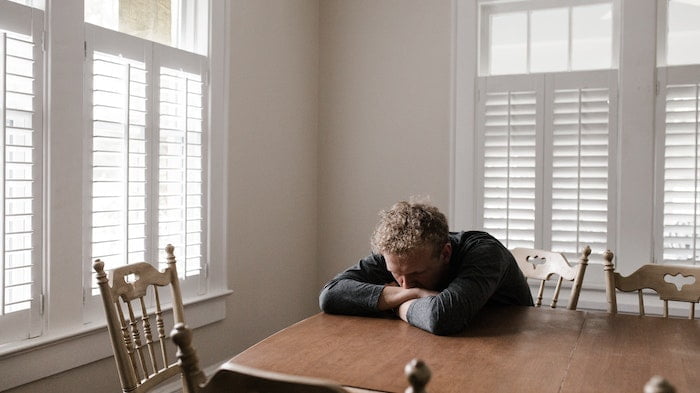Drug and Alcohol Rehab Leicestershire
Quick Links for help with addiction in Leicestershire
- Addiction Statistics in Leicestershire
- What is Rehab in Leicestershire?
- What is Alcohol Addiction?
- What is Inpatient Addiction Treatment in Leicestershire?
- What is Outpatient Addiction Treatment in Leicestershire?
- The Alternatives to Private Rehab in Leicestershire
- What Happens When I Arrive At Rehab in Leicestershire?
- How Long Does Aftercare Last?
- How Much does Rehab Cost in Leicestershire?
- Tips for Choosing the Right Rehab in Leicestershire
- How Can I Refer Myself Into Rehab?
Those seeking a private rehabilitation centre in Leicestershire may be looking for a better way to treat their loved one struggling with a drug or alcohol use disorder.
A specialised drug or alcohol rehabilitation clinic can offer the patient a more focused and dedicated level of care so they can take the necessary steps to enjoy life apart from their substance abuse disorder.
Many times, these facilities involve behavioural therapies that help students learn to cope with their dependence and build better thinking skills so that they may experience a healthier way of life when applied properly.
Rehabilitation programmes in Leicestershire may also involve a range of therapeutic activities designed to introduce the patient to techniques for achieving a more accountable lifestyle.
These may include individual counselling sessions, group therapy sessions, mutual support groups, educational classes, and more. it’s important the patient has access to the tools and resources they will need to make necessary improvements.
Each patient is unique, and their priorities will vary depending on individual circumstances. Seeing that the patient has access to a licensed therapist when they need one is often very important, and a private rehabilitation facility in Leicestershire could deliver this kind of elevated supervision and care.
There is a stereotype of what type of person falls into alcohol or drug addiction, but the reality is that anyone can develop this type of behaviour. Nobody ever chooses to endure this type of suffering and when these people begin using alcohol or drugs they will have no idea about where it is all going to lead.
Addictions at alcohol or drug rehab in Leicestershire include alcohol addiction, binge drinking, benzodiazepine addiction, cannabis use disorder, cocaine dependence, opioid use disorder, behavioural addictions and gambling addiction. Buprenorphine addiction, crack cocaine addiction, ketamine addiction and any substance use disorder or physical dependence.
To begin your journey towards sobriety with the help of a drug and alcohol rehab in Leicesterhsire, call us today on 0800 088 66 86
Who is More Susceptible to Addiction in Leicestershire?

The type of people who become addicted in Leicestershire will include:
- People who begin relying on alcohol or drugs to help them deal with the stresses of life: The individual find that a few drinks before bedtime helps them sleep and before they know it they are in the midst of addiction.
- Some people will fall into substance abuse after taking prescribed medication under orders from a doctor: This is particularly likely to happen with medications such as opiates. The person will have a legitimate reason for taking this medication in the beginning, but they start to take it because they like how it makes them feel. Once the doctor suspects what is happening they will cut the supply, but by then the person will be on a path to addiction.
- There are people who feel they have the right to party hard and let their hair down: The old saying that you work hard, you play hard. What this person will fail to consider is that playing hard is leading them into addiction.
- The problem is that most humans tend to suffer from a condition known as terminal uniqueness: It is the same reason why people are able to smoke cigarettes or engage in other unhealthy habits. The individual accepts that this activity is dangerous but only for other people. The person has an irrational belief that they are somehow exempt from the normal rules of life. It is called “terminal” uniqueness because this type of thinking gets people killed.
- Many people will fall into addiction because of peer pressure: This tends to be particularly the case with young people who can be pressured into experimenting with these substances by their friends. The person may genuinely intend to only try these substances once, but some drugs are so highly addictive that the individual is quickly hooked.
- There are some people who have a personality that makes them more prone to addictive behaviour: This would include those individuals who like to break the rules and take risks. The same personality that makes people great entrepreneurs can also put them at risk of addiction. This probably explains why there are so many high-functioning addicts.
- Some people really struggle to deal with life: They may be painfully shy or they just can’t cope with the challenges of life. In the beginning alcohol and drugs can seem to be making things better for the person. An alcoholic once described the situation perfectly with the words, “alcohol gave me wings but then it took away the sky.”
If you’re worried that you may be succeptible to addiction and need support from a rehab in Leicestershire, call us today on 0800 088 66 86
Addiction Statistics in Leicestershire

Leicestershire’s alcohol abuse rates are far above the national average, as detailed on the Leicester City Council’s official website. The city’s rate of drug-related hospital admissions is also deeply concerning.
Earlier this year, Leicestershire saw more than 50 drug overdoses in a period of just two weeks. This horrific heroin problem is not just a problem in the city of Leicester but over our whole county.
Below, we provide some statistics about alcohol use in Leicestershire:
| Alcohol Statistics in Leicestershire (2018-21) | Data |
| Proportion of adults who drink more than 14 units per week | 29.8% |
| Proportion of adults who binge drink | 21% |
| Number of alcohol dependent adults in Leicestershire who may benefit from treatment for their alcohol misuse |
5,500 |
| Number of admissions to hospital due to alcohol-related causes | ~4,000 |
Whether a person is addicted to drugs, alcohol, or both, the best treatment available in rehab. If you are looking for a quality drug & alcohol rehab in Leicestershire, Rehab Recovery can help.
Find out how the many addiction treatment services in Leicestershire can help you – call us today on 0800 088 66 86
How Do I Know When My Addiction is Something to Worry About?
Surveys by Leicestershire County Council states that binge-drinking in Leicestershire is above the national average at 21% of adults as opposed to 16.5%. [1]
This indicates that there is a strong drinking culture in the area.
When surrounded by people who drink a lot, how do we know when drinking stops becoming ‘normal’ and begins to become a problem?
Addiction is a bit like a slope. Sometimes it gets a lot steeper a lot quicker than you realise, and getting back to the top again is suddenly too tough.
If you feel that your drinking or substance use is beginning to spiral out of control, it’s likely that your use has begun to dip into addiction.
At this stage, you may need to ask yourself, what are the signs that a drug or alcohol addiction is present?
Medical professionals use a range of diagnostic tools to assess if a person’s substance use has deepened into addiction. One of the most common if the CAGE questionnaire, which was first developed in 1984.
This questionnaire includes four questions:
- Have you ever felt you should cut down on your drinking?
- Have people annoyed you by criticising your drinking?
- Have you ever felt bad or guilt about your drinking?
- Have you ever had a drink first thing in the morning to steady your nerves or get rid of a hangover? (What’s known as an ‘eye-opener). [2]
Each time you answer ‘yes’ you earn a score.
If you score two or above, your drinking is considered to be ‘clinically significant’ and therefore poses risk to your mental and physical health.
What Impacts Can Drug and Alcohol Addictions Have on a Person?
Addictions are often described as chronic.
That means they have serious negative impacts on various parts of your life.
Individuals struggling with drug and alcohol addictions may find they are having increasing difficulties in the following areas:
- Relationships and social life
- Physical health
- Mental health and stress levels
- Professional or educational engagements
- Finances and money
- Self-care and hygiene
Addiction to drugs and alcohol can also lead to serious health consequences in Leicestershire; recent data supports this, as there were 4,000 alcohol-related admissions to hospital in Leicestershire in 2016-17 alone. [3]
What Impact Can Drug and Alcohol Addictions Have on Families in Leicestershire?
Of these adults:
- 153 (15%) were parents or lived with children
- 420 (42%) were parents not living with their children [5]
This shows that a high percentage of adults seeking support for addiction have childcare responsibilities.
Unfortunately, children who have lived with individuals struggling with addiction are likely to be impacted by this experience.
The NSPCC’s overview of clinical research indicates that children are impacted by parental substance misuse in the following ways:
- They are more likely to use substances themselves
- They are more likely to be exposed to crime
- They are likely to blame themselves
- They are more likely to develop behavioural, emotional or cognitive problems [6]
What is a Medically Assisted Drug or Alcohol Detox at a Drug and Alcohol Rehab in Leicestershire?

Image above: Types of medications you may be given at a drug and alcohol rehab in Leicestershire
A medically assisted detox is a detox that is supported by medication.
This is sometimes known as pharmacological intervention, and it happens when withdrawal symptoms get difficult to manage.
The goal of these medications are to reduce cravings, manage withdrawal and prevent relapse.
The medications that are used help to ease some of the trickier effects of detoxing and can help you feel more physically stable as well as help you to relax. [7]
The specific type of medication used in detox will vary depending on the substance you are withdrawing from. Options will be discussed with you by your clinical team in one of our Leicestershire centres.
What is Rehab in Leicestershire?
Rehab is shorthand for a type of medical treatment in Leicestershire that helps people to manage difficult symptoms.
You can attend rehab for a range of things; some people go to rehab after sustaining serious injuries. [8]
At Rehab Recovery we specialise in addiction rehab. This means that in our Leicestershire centres (and our other facilities up and down the country) we provide support for people to manage their addictions.
Drug and alcohol rehab in Leicestershire usually happens in three stages:
All of these stages will be directly tailored to you and your individual needs in a personal care plan.
Residential Alcohol Rehab in Leicestershire Vs. Outpatient. Which is Better?

This depends on you and what you are trying to achieve during your treatment in Leicestershire.
Residential rehab is recommended as the inpatient aspect of rehab can help people to maintain focus and work solely on their recovery for the duration of their treatment.
It can also help people to manage temptation if cravings get difficult, and can also give you a chance to meet individuals with similar experiences which promotes a safe, community feel.
Outpatient rehab allows you to stay at home when you’re in treatment in Leicestershire.
If you did not want to travel to one of our rehab centres and wanted to stay home in Leicestershire, outpatient support allows you to do that.
It can also be a way to maintain your support network as you may be closer to friends and family, and you may not need to take leave from work as you can largely keep to your typical schedule. [9]
How Effective is Rehab in Leicestershire at Treating Addictions?
The effectiveness of rehab in Leicestershire rests on a lot of different things.
Some people exit treatment. Around 61% of individuals in treatment for alcohol addiction complete their rehab treatment. [10]
For that reason we cannot guarantee that rehab will be 100% effective as there is always a level of personal variations and circumstances.
However clinical research into addiction shows that formal rehab such as the kind we offer in Leicestershire is most closely aligned with successful recovery that attempts to get sober independently. [11]
Will Rehab in Leicestershire Cure Me of My Addiction?
Addiction isn’t something we can cure – but it is something that we can learn to manage. [12]
Whilst we will never proclaim to offer a cure for addiction, we are proud that our support staff in Leicestershire and across the country offer treatment that aims to equip people with the confidence, skills and self-compassion to continue to manage their addiction far after rehab formally ends.
At Rehab Recovery we provide professional support from experienced and empathetic specialists that aim to help you battle your addiction with research-led and person-centred treatment in Leicestershire.
Does Drug and Alcohol Rehab for Teens in Leicestershire Work?
Between April of 2021 and March of 2022, there were 11,326 young people in treatment for substance use. [13]
Of these young people, 82% left having completed their treatment in full.
This suggests that early intervention is key when treating addiction.
Treatment exits are relatively low in young people which indicates younger individuals can potentially be more engaged in a rehab context than their adult counterparts.
If you would like to know more about this, you can speak to our team about what support we offer specifically for teenagers and young adults in the Leicestershire area.
What Happens If I Don’t Get Help in Leicestershire?

Sadly, without help, addictions tend to worsen.
This is because addictions are categorised as disorders (they are sometimes known as ‘substance use disorders’ or SUDs) and typically, disorders require appropriate treatment to be managed. [14]
Not managing addiction can lead increased risk:
In 2016 there were 9,214 alcohol-related deaths in the UK. [15]
4,859 people died from drug-related poisoning in England and Wales in 2021. [16]
Why Should You Avoid Recovering on Your Own?
Addictions happen because substances can be difficult beasts to control.
It’s not very common for addiction to happen overnight.
It’s something that develops.
And that development can often be linked to other things, such as difficult or traumatic experiences, bereavement, stress, depression, or other mental illnesses that are commonly experienced alongside addiction, such as:
- Anxiety
- Borderline personality disorder
- Bipolar disorder
- PTSD
- Schizophrenia
- Obsessive compulsive disorder [17]
If you do not access support for your addiction, you are also less likely to be able to address and access support for the difficult thoughts, feelings and memories you may be experiencing that could have led to addiction in the first place.
If the underlying concerns are not addressed, then there is an increased risk of relapse.
This is why we incorporate therapy as a cornerstone of our support packages in our Leicestershire services, to tackle addiction from as many sides as possible.
Can I Recover From Addiction Without Professional Help in Leicestershire?
It isn’t impossible to recover on your own, but it is often more difficult to recover without professional help in Leicestershire.
This is because addiction works in cycles.
The four main stages of addiction are
- Compulsion
- Cravings
- Consequences
- Control [18]
These cycles are categorised by intense thoughts and feelings.
You may feel more willing to work towards sober living when you feel in control, but may abandon the hope of sobriety when cravings kick in.
Professional support like the kind offered in our Leicestershire rehab centres can help you as the clinicals working to help you are not in these cycles; they are not under the influence of addiction– and therefore, can help you break out of them.
When you are in these cycles, they can be hard to break.
How Do I Prepare for Addiction Rehab in Leicestershire?
People will prepare for drug and alcohol rehab in Leicestershire in different ways, but some of the main areas you might want to consider are:
- Finances
- Work or educational commitments
- Childcare or caring commitments
- Research into treatment
- Setting some goals you would like to achieve during your rehab experience
- Writing a letter to yourself as a reminder of why you are aiming for sober life
- Speak to our team in Leicestershire
How Do I Tell My Family I’m Going to a Drug & Alcohol Rehab in Leicestershire?

When we are struggling or feeling unwell, we an often think that we have something to hide.
But a lot of the time, keeping the truth to ourselves can actually work to make us feel more unwell, even making us lonely, isolated and reluctant to spend time with our loved ones. [19]
This kind of isolation can lie heavy and make it feel harder to move forward.
By telling your loved ones about what is going on you start your recovery in an honest way with less pressure to pretend.
Our team in Leicestershire can help you think about how it may be easiest to speak to your family about starting treatment.
They may even suggest that you incorporate family therapy into your treatment plan as a way of addressing some of this tension if telling your loved ones is something you are worried about.
Can I Lose My Job If I Leave to Go to Rehab in Leicestershire?
If you inform your management that you are starting treatment in Leicestershire, then there are specific guidelines they are required to follow.
This is because rehab classes as a medical treatment, and there are legislations and acts that protect employees and their rights to access clinical support in the workplace. [20]
So, if you tell your employer about what is going on they will be able to put measures into place to support you at work.
These are known as ‘reasonable adjustments.’
If you do not tell your employer, these measures may not be established. This can make it difficult in the workplace and may lead to reduced performance.
Without explanation, reduced performance at work could lead to friction, misunderstanding, and even disciplinary action.
For this reason, it is best practice to be honest about your experience so your employer can see how they can best support you.
Will Your Insurance Cover Rehab in Leicestershire?
Under some plans and packages, rehab classes as a medical treatment that your insurer can help you to cover.
This counts for both personal policies and workplace policies that may have been put in place as part of your employee benefits.
Like most things, whether your insurer will pay out will depend on the specific package you have. It may be worth looking at the plan you have in detail and speaking with your provider to ask if they can offer any additional support on top of your usual plan.
If you are worried about how to fund your rehab treatment in Leicestershire you can speak to our team about ways of financing rehab.
Can I Force My Loved One to Go to Rehab in Leicestershire?

Rehab is a difficult process – it requires a lot of hard work and commitment from the individual receiving treatment.
For that reason, it’s not really possible to force a loved one to go to rehab – and it’s not advised, either.
If someone is not yet committed to working to sobriety, then rehab will seem like too difficult a task, and the payoff won’t seem worth it.
Rehab typically takes place when individuals have come to accept that they have an addiction and that they need support to overcome it. [21]
If you are worried about a loved one, there are ways you can support them – but forcing them to attend rehab when they are not ready can do more harm than good.
That happens when people are detained for the safety of themselves and/or others around them. When this happens, it is possible that people may be in treatment that they did not themselves request to receive, but this is an exception to the general rule of rehab admission.
Should I Go to Alcohol Rehab or AA in Leicestershire?
If you’re struggling with addiction for the first time, or have never accessed support before, the general advice would be to seek medical treatment to give you the best chance to access all the tools you need to combat it.
If you find that your substance use is starting to creep up but it feels relatively under control, or you have been in treatment before and you’re looking for a way to stay on track, attending AA (Alcoholics Anonymous in Leicestershire) meetings in Leicestershire may be an appropriate treatment for you.
AA is a support group which can be very helpful for many people – it is a great addition to any rehab treatment, but it does not necessarily stand in for clinical support.
What is Alcohol Addiction?

Reaching out for help with addiction takes a lot of courage, and it is important to remember that there is no shame in asking others for help.
Despite what some people may say, alcohol addiction is a disease, not a choice or a moral failing. It is simply an illness that needs to be treated.
The best place for this treatment to happen is at rehab, where a person can have help with all the different factors of their addiction from specialist professionals.
Alcohol addiction needs a medically-assisted detox using Chlordiazepoxide (brand name Librium) in order to ease alcohol withdrawal symptoms or alcohol withdrawal syndrome.
Without rehab, alcohol addiction can result in delirium tremens, seizures or Wernicke encephalopathy.
You can read more about the disease of addiction here.
Start your recovery journey at a rehab in Leicestershire today by calling our expert team on 0800 088 66 86
What If I Suffer From Multiple Conditions Alongside Addiction?
Addiction is a mental health condition, as well as a disease of the body. Unfortunately, people who suffer from addiction often suffer from other mental illnesses at the same.
Conditions such as depression, anxiety, OCD, and personality disorders can all make a person’s addiction much more difficult to deal with and can be an aggravating factor in terms of substance abuse.
One of the reasons that rehab is such a valuable experience is that it provides a perfect environment in which to diagnose and treat underlying mental health conditions. This is referred to as dual diagnosis.
Rehab patients are under the care of top mental health practitioners who will be able to identify any such issues and put together a treatment plan which melds with the rest of your rehab care.
The term dual diagnosis is used to describe people who have been diagnosed (according to the DSM-5) with a SUD and another mental health condition.
You will have a psychiatric assessment by a psychiatrist to determine whether you need psychiatric treatment.
This can be for:
- Depression
- Anxiety
- Schizophrenia
- Bipolar Disorder
- Borderline personality disorder
- Eating disorders
- Obsessive compulsive disorder
- Post traumatic stress disorder (PTSD)
Many organisations across the UK offer free mental health support, whether you are also suffering from addiction or not.
Some of these include Mind UK, Young Minds, Rethink Mental Illness, Samaritans and Papyrus.
To learn how a drug and alcohol rehab in Leicestershire can help support your mental health, call us on 0800 088 66 86
The Abstinence Model of Recovery at Rehab in Leicestershire

Experts have agreed that abstinence is always the safer and more effective route to addiction recovery.
Some people think that they might be able to return to use on an occasional basis after completing treatment. However, this will usually end up back in full addiction.
Aiming for abstinence means that there is no grey area where substance abuse is concerned – either you are still in recovery, or you have relapsed.
If a substance has been a part of your life for years, it can be hard to picture your life without it. However, with the comprehensive treatment that rehab offers, as well as continuing effort and vigilance once you leave the clinic, lifelong recovery and abstinence are possible.
Take back control of your life and start the process of entering a rehab in Leicestershire by calling us on 0800 088 66 86
What is Inpatient Addiction Treatment in Leicestershire

Professionally supported drug and alcohol rehab in Leicestershire is one of the best ways to recover from addiction.
Residential rehab is definitely the best place to be if you need to go through detox as part of your treatment plan, due to the nature of care involved in the process.
Rehab also gives you access to a wide range of professionals that you would not have access to outside of a clinic. Arranging this comprehensive level of care in the outside world would be very difficult, to say the least.
One of the main benefits of going to residential rehab is being able to go through recovery in a peaceful, secure environment, shielded from all the noise and distractions of the modern world.
When you consider all of these different factors, it is not surprising that residential rehab is consistently demonstrated to be the most effective means of treatment for substance addiction.
Addiction is not considered a ‘choice’ or ‘moral failing’ on behalf of the addiction sufferer – rehab is about treating the disease of addiction.
Enter a residential drug and alcohol rehab in Leicestershire in the best possible way by calling us on 0800 088 66 86
What Are the Alternatives to Going to Rehab?/Is Rehab My Only Option in Leicestershire?
At Rehab Recovery we only refer to private rehab clinics, but there are other options available for those who cannot afford private treatment right now in Leicestershire.
There are a great number of public rehab services, which are free to the service user, and are funded through organisations such as the NHS, local council authorities, and social enterprises.
Pursuing public rehab is always an option – however, you should be aware that there are potential downsides. For one thing, you will likely need to be on a waiting list for a substantial amount of time before starting your treatment in Leicestershire.
Another issue with going through the public route is that you will not have as much of a say in what kind of centre you go to, or what kind of accommodation and care you receive.
While private rehab costs a significant amount of money, you will have the advantage of beginning your treatment straight away and having much more say over where you get treatment in Leicestershire.
If you would like to look into the possibility of public-funded care, we can provide free and confidential advice on how to go about that.
Is Addiction Treatment Accessible Through the NHS?
Free and NHS-run addiction services include:
1. Turning Point Leicestershire
Address: 42 High Street, Coalville, LE67 3EE
Telephone: 0330 303 6000
Website: https://www.turning-point.co.uk/services/leicestershire
2. CAMHS Leicestershire
Address: Artemis House, Westcotes House Site, Westcotes Drive, Leicester, LE3 0QU
Telephone: 0116 295 2959
Website: https://www.leicspart.nhs.uk/service/child-and-adolescent-mental-health-services-camhs/
3. Dear Albert
Address: 68 Humberstone Gate, Leicester, LE1 3PL
Telephone: 07712 707999
Website: https://www.dearalbert.co.uk/
I Can’t Afford Drug and Alcohol Rehab – I Don’t Have Insurance. What Can I Do?
Rehabs and organisations are led by guidelines set by the American Society of Addiction Medicine, National Institute for Health and Care Excellence, the National Association for Children of Alcoholics and the NHS Foundation Trust so you are in safe hands with person-centered care.
You will be given plenty of coping mechanisms to maintain your sobriety, as well as the possibility of sober living houses.
The NHS, Turning Point, Change Grow Live and We Are With You provide free and reliable information about drug and alcohol addictions and dependencies.
Attending nearby 12-Step programmes like Cocaine Anonymous in Leicestershire, Narcotics Anonymous (NA) in Leicestershire and Alcoholics Anonymous (AA) can be a great way to connect with other people in recovery and maintain your sobriety by giving yourself over to a higher power.
For help choosing the right rehab in Leicestershire for you, whether that’s private or public, call us today on 0800 088 66 86
What is Outpatient Addiction Treatment in Leicestershire?

The experience of drug & alcohol rehab in Leicestershire will vary from one person to the next. One of the main variables in this is whether the person attends rehab as an inpatient or as an outpatient.
Being an outpatient simply means that you will attend rehab by day and stay home at night, as you might do if you were going to work or university.
Outpatient care is usually much cheaper, as there are no accommodation costs involved in your overall package. However, it is not suitable for everyone.
Can I Do An Alcohol Detox At Home?
Outpatient rehab or home detox would not likely be appropriate for:
- Those regularly drinking 25+ units of alcohol per day
- People with debilitating and/or chronic mental health problems
- Those who have previously failed to get or stay sober after attempts at outpatient treatment and/or home detox
- Those who are likely to commit acts of aggression or violence against their loved ones when intoxicated
- Those who have suffered from Delirium tremens and/or alcoholic seizures
- Those with Wernicke’s encephalopathy
Anyone who has one or more of the above applied to them would likely not be a suitable candidate for home alcohol detox or outpatient rehab in Leicestershire.
The possibility of outpatient care in Leicestershire is something that we can discuss in detail as part of your telephone assessment.
Call us today on 0800 088 66 86 to learn more about accessing outpatient rehab in Leicestershire
The Alternatives to Private Rehab in Leicestershire

We understand that you may not have the money and/or availability to go to residential rehab right now. If this is the case, there are still a number of viable treatment options available to you in Leicestershire.
Below we have listed some of the resources that may be available in your local area. Please be aware that availability may differ depending on your location.
What is Alcoholics Anonymous?
At some point, you will probably have heard of something called the ’12 step programme’. This method is at the centre of Alcoholics Anonymous (AA), which has been in operation for nearly a century.
AA provides a free programme of meetings and support for anyone who is facing addiction and trying to get into recovery.
What is Narcotics Anonymous?
Narcotics Anonymous (NA) also takes a spiritual approach to the problem of addiction, treating it as a spiritual disease, and encouraging members to give themselves to a ‘higher power’.
Cocaine Anonymous (CA) are another organisation specifically for cocaine problems that hold regular meetings in the Leicestershire area and around the rest of the UK.
What is SMART Recovery?
The spiritual approach to treating addiction does not work for everyone, and there are many who do not feel comfortable with it, for their own different reasons.
If this is the case for you, it may be that you are better suited to SMART Recovery, an organisation that offers clinical, evidence-based treatments to people who are experiencing addiction problems.
SMART treats drug and alcohol addiction as a behavioural problem to be treated, rather than a spiritual disease to be cured.
SMART is a worldwide organisation. Several meetings are held regularly in the Leicestershire area, as well as a wide selection of online meetings.
Home alcohol detox in Leicestershire
For some people who are living with alcoholism, detox is almost always necessary. For some people, it may be possible to arrange a detox that takes place in the comfort of their own homes.
However, certain eligibility criteria need to be met in order for this to be possible – the main one being that you would need to be consuming fewer than 30 units of alcohol per day on average.
You would also not be a suitable candidate for home alcohol detox if you have serious mental health challenges, or your home is unstable or otherwise unsuitable.
As part of your free telephone consultation, we can provide advice as to whether you would be able to complete a home alcohol detox. Thanks to its remote nature, anyone living in Leicestershire who qualifies for home detox will be able to access it.
Al-Anon Family Group meetings in Leicestershire
Al-Anon provides various types of support for the friends and family members of those in addiction. The main service they offer is regular group meetings, which take a similar format to AA meetings in Leicestershire.
Like AA, Al-Anon has its own set of guiding principles. Many Al-Anon family meetings are ehld frequently throughout Leicestershire.
Outpatient treatment via a local Drug & Alcohol team in Leicestershire
Your local GP surgery in Leicestershire will have a number of different resources available to anyone who is seeking help with addiction.
If you can, book an appointment at your local surgery and ask your doctor about the possibility of being under the care of the area’s local drug & alcohol outreach team.
Depending on what resources they have in place, it may be that the team can schedule regular home visits with you, or provide you with other forms of support.
Being involved with this kind of outreach team can be a great help to people who are struggling with addiction problems, especially during times of crisis.
To access any of the addiction treatment services available in Leicestershire, call our team on 0800 088 66 86
What is the Admissions Process for Our Rehabilitation Centre in Leicestershire?

As well as being a resource of free information, Rehab Recovery can help you find a drug & alcohol rehab in Leicestershire that suits your needs and circumstances. The first step to getting a rehab placement is to call us for free.
One of our team will be able to take you through a telephone consultation, the goal of which is to match your needs with a quality private rehab in Leicestershire from our vast database of contacts.
If you are satisfied with our recommendation, we can give you all the pertinent information and take care of all the paperwork, meaning that you can start treatment very soon afterwards.
Once you arrive at your rehab clinic, you will be assessed by the admissions team on site, who will aim to get to know you better and plan out the best possible treatment plan for you in Leicestershire.
This assessment may take a different form depending on which clinic you go to, but the assessment is likely to include one or all of the following:
ASAM criteria
The American Society of Addiction Medicine (ASAM) has its own set of criteria for judging the severity of a person’s addiction, as well as their suitability for treatment in Leicestershire.
The ASAM method is often used in rehab assessments. There are six criteria overall:
- Acute Intoxication and/or Withdrawal Potential – Exploring an individual’s past and current experience of substance use and subsequent withdrawal
- Biomedical conditions and complications – Exploring an individual’s health history and current physical conditions
- Emotional, Behavioural, or Cognitive Conditions and Complications – Exploring an individual’s thoughts, emotions, and mental health issues
- Readiness to change – Assessing how willing the person is to commit to treatment
- Relapse, continued use, or continued problem potential – Exploring an individual’s unique relationship with drug or alcohol relapse or their continued use or problems
- Recovery/living environment – exploring an individual’s recovery or living situation, and the people, places, and things involved
This information is used to plot out the most effective treatment plan possible, which will vary from one person to the next.
Substance abuse disorder diagnosis in the DSM-5
The Diagnostic and Statistical Manual of Mental Disorders, abbreviated to DSM-5, is a manual used by the American Psychiatric Association for the diagnosis and treatment of mental disorders.
The book has its own methodology for diagnosing substance abuse disorder and addiction, which consists of different symptoms broken down into four categories, as below:
- Impaired Control – Using more of a substance than intended, or using more often than intended; wanting to cut down but being unable to do so
- Social Problems – neglecting responsibilities and relationships; giving up activities that they used to care about; being unable to complete tasks at work or school
- Risky Use – using in risky settings or circumstances, continuing to use despite knowing that there are problems
- Physical Dependence – Needing more of a substance to gain the same effect; having withdrawal symptoms when not using the substance
The DSM-5 provides a scoring system for the symptoms above, based on the number of symptoms present within the individual:
- Two or three symptoms – Indicates a mild substance abuse disorder
- Four or five symptoms – Indicates a moderate substance abuse disorder
- Six or seven symptoms – Indicates an extreme substance abuse disorder (addiction)
Anyone with a substance abuse problem or addiction can be treated at rehab. The reason that patients are assessed so thoroughly is to ensure that the clinicians on site are able to administer the most effective care plan possible.
The AUDIT test
Alcoholism is a health issue, so it makes sense that the World Health Organisation has its own method of assessing the severity of a person’s alcohol abuse problems.
The method is called AUDIT, which stands for Alcohol Use Disorder Identification Test. It features a list of questions with multiple choice answers, as well as its own scoring system.
If you would like to take the test for yourself, search ‘AUDIT alcohol test’ on your search engine of choice. The test is available on the UK Government’s official website.
To begin your journey at a rehab in Leicestershire, call us today on 0800 088 66 86
What Happens When I Arrive At Rehab in Leicestershire?
When you arrive at rehab several things will happen.
Whilst they might not happen in this order, some of the first things that will occur in our Leicestershire rehabs are:
- An admissions interview (a chance to talk about what has been happening)
- Designing a care plan (talking about what your treatment will look like day to day)
- Meeting your care team
- Touring the facility
- Discussing any rules at the centre (what items are prohibited in the centre, visiting hours, etc)
- Meeting other patients
Will I Be Able to See My Family During Rehab in Leicestershire?
For some people, family contact is an essential part of recovery.
It can be a good way to break up the day, a welcome distraction, something positive to look forward to.
For this reason family are allowed to visit patients on site during treatment in Leicestershire.
There may be instances where family therapy is identified as a lucrative support route for you, which means not only will you see your family, but they will have an active involvement in your treatment. [23]
That being said, your care team may speak to you about visiting and can advise that visits do not happen too frequently or too early in your treatment as for some people too much contact too soon can lead to homesickness that can distract you from your recovery.
There are also some situations where you may not wish to see your family for many different reasons, and we also respect this too. [24]
Can I Leave Rehab At Any Time in Leicestershire?

At Rehab Recovery you will be treated with respect and trust, and will be allowed to leave our centre, whether you are seeking treatment in Leicestershire or somewhere else in the UK.
There are some instances where your team may suggest it is not the best idea to leave, however.
This might happen in particular situations, including:
- During detox treatment (to ensure you are physically safe)
- If you are particularly struggling with cravings (to reduce your risk of using)
- You have not been at the centre for very long (to reduce your risk of early treatment exit)
Whilst the team may advise you in these situations, you are still free to choose to leave unless there are concerns that you are a risk to yourself and others and measures need to be put into place due to this.
Will My Rehab Programme Be Confidential?
Our team does not share details on treatment other than in certain situations where it is explicitly required of them to do so.
Under GDPR (the General Data Protection Regulation) rules, your health data is protected. [25]
Some examples where information may be shared include if you have a new member on your treatment team, you seek treatment from a third party and give permission for your history to be shared, or if the team have legitimate concerns about your safety or the safety of others.
Do Rehabs Centres in Leicestershire Provide Gender-Specific Treatment?
Starting rehab in Leicestershire can be quite intimidating at the best of times.
For some people, though, there are specific things that might make this even more difficult.
This happens in circumstances where individuals have specific vulnerabilities that may make accessing medical treatment more of a worry.
For some people, the idea of being in a medical environment with a mix of genders can be very triggering. This may be due to personal experiences and trauma from the past. [26]
For this reason, we aim to offer gender-specific treatment at our Leicestershire centres so everyone can feel as safe as possible.
Some other specific demographics that may need tailored treatment in Leicestershire include:
- Armed Forces
- Teenagers and young people
- LGBTQ+ people
- Homeless individuals
- Disabled people
- Neurodivergent people (including autistic individuals)
- Single mothers
- Victims of domestic abuse
To find out more about the kinds of reasonable adjustments we can make, you can contact our team.
What Happens During Detox?
Your experience of detox (and if your treatment requires one) will depend on the substance you are seeking support for.
A detox is the name for the initial period of abstinence from drugs or alcohol; it’s the period when you withdraw from addictive substances and your body adjusts to them no longer being there.
You may experience cravings or withdrawal symptoms during a detox.
Common withdrawal symptoms include:
- Difficulty sleeping
- Being (or feeling) sick
- Feeling anxious or on edge
- Feeling pain, tension or cramps in the muscles
- Struggling to regulate temperature (homeostasis)
- Upset stomach or diarrhoea [27]
How Long Does a Detox Last at a Drug and Alcohol Rehab in Leicestershire?

Some detoxes will take longer than others.
That’s because it largely depends on the drug you have been using.
Different drugs have different chemical makeups, which means they affect the body in different ways.
Depending on the drug you are withdrawing from, you could experience detoxing in different phases.
Here are some guidelines of how long it can take with different substances:
- Detoxing from alcohol: three to seven days
- Detoxing from heroin: four to ten days
- Detoxing from methadone: ten to twenty days [28]
What Medications May Be Prescribed During Rehab in Leicestershire?
Rehab is a clinical setting, and in clinical settings medication is often used as part of treatment in Leicestershire.
If your treatment team believes it would benefit you, you may be prescribed medications.
This could be in the detox stage, where you may need some medications to help ease some withdrawal symptoms.
Or, it could be in the later stages of rehab, where symptoms of anxiety, depression or other dual diagnoses may need to be treated with medications.
What Happens After Initial Detoxification?
After detoxing, you will be ready to start with the psychological side of treatment in Leicestershire, where you will be offered support with a range of different therapeutic interventions.
Some of the therapies you may take part in during rehab in Leicestershire include:
- Acceptance and commitment therapy (ACT)
- Addiction Counselling
- Brief Interventions
- Cognitive Behavioural Therapy (CBT)
- Dialectical Behavioural Therapy (DBT)
- Family therapy
- Holistic Therapies
- Group therapy
- 1-1 Therapy
- Mindfulness
- Motivational Enhancement
- Motivational Interviewing
Is Detox With No Rehab Possible in Leicestershire?

Some people may find that they feel happy to end treatment in Leicestershire after detoxing.
Whilst this is possible, it’s not frequently recommended.
This is because, in the addiction industry, we tend to see addiction as a two-pronged phenomenon:
It is
- Physical
and
2. Psychological
Without addressing the two sides of the coin, there is an increased risk of relapse.
Detoxing can help your body to function without drugs, but it doesn’t help you to cope with potential triggers or cravings that might happen in the future.
What Happens in the 28-Day Rehabilitation Treatment Programme in Leicestershire?
During an alcohol rehabilitation programme, you will usually experience treatment in Leicestershire in stages.
Assessment is largely what happens before you start rehab – it begins when you contact us and we first start getting to know how to help you.
During this stage we may ask you some questions about your medical history, any medications you may currently be using, and what treatments (if any) you’ve had for addiction in the past.
This helps us to get a picture of what your care plan might look like, so we can best tailor your support to you. [29]
You can find out more about what your detox phase may look like by using this website to learn more about detoxing from specific substances.
The third stage is the therapy stage.
For most people, this is often the longest and can be the most challenging. But it is also the stage most closely aligned with positive treatment outcomes and longer-term sobriety. [30]
The fourth and final stage is aftercare.
Aftercare, like the name suggests, is care you can access after your formal rehab stay has come to an end. This can take the form of support groups, 1-1 therapy or the use of prescription medication and close contact with a primary care provider in the Leicestershire community.
How Long Does Aftercare Last?
Aftercare lasts as long as it needs to – this is largely decided by you and what you feel you need.
By keeping in touch with your treatment team and primary care providers, you will be able to keep your finger on the pulse with your current needs and in doing so will be able to establish when your treatment ebbs and flows depending on how you are feeling.
How Long Does Alcohol Rehab Last in Leicestershire?
Rehab, on average, lasts 28 days.
That accounts for both detox and therapeutic treatments in Leicestershire.
That doesn’t mean, however, that everyone who comes to rehab in Leicestershire stays for 28 days. Some people may stay for longer, for up to month, or even several months, whilst some people may only stay for a week. [31]
You’ll be able to speak to your treatment team who can help you to estimate how long your stay with us in rehab may be in the early stages.
It may be helpful to know, though, that the team will be there to monitor your progress and well-being continually, and will be able to recommend early discharge or extended treatment when and where appropriate to give you the best chance of a successful recovery.
How Can I Convince a Loved One to Receive Drug and Alcohol Rehab in Leicestershire?

Some people can live in active addiction for years before finally accepting that they need help. One of the reasons for this is addiction denial, which for many can be a big problem to overcome.
If you are concerned about someone who you love, an intervention is one way of getting through to them about the damage their addiction is causing.
Usually, this takes the form of loved ones gathering in a room with the addicted person and explaining, one by one, how their addiction and destructive behaviours have impacted others.
Ideally, this kind of intervention should be conducted with the help of a trained and experienced intervention counsellor, who can make the session as constructive as possible.
CRAFT Intervention
The CRAFT method of intervention, which stands for ‘Community Enforcement and Family Training’ is quite different from a traditional addiction intervention.
The CRAFT approach means that family members and loved ones will acknowledge positive changes in the addicted person’s behaviour, such as abstaining from drugs or alcohol for a period of time.
If you would like more advice on how to stage an intervention for a loved one, either through traditional means or the CRAFT technique, we can provide free expert advice over the phone.
To learn how to conduct an intervention in order to convince a loved one to seek addiction treatment in Leicestershire, call us today on 0800 088 66 86
How Much does Rehab Cost in Leicestershire?

The overall cost of your addiction treatment in Leicestershire will vary depending on a few factors. Each clinic has its own pricing, and there are several different treatment plans available at each.
For example, a 28-day rehab course would cost between £8,000 and £12,000 f you were to stay in your own private room, but around £6,000 if you were to stay in a multiple-occupancy room.
A single-occupancy room for a 10-day standalone detox will cost less – likely between £3,000 and £6,000. For multiple-occupancy accommodation, this would probably be reduced to between £2,000 and £4,000.
The most affordable treatment option is outpatient home detox with medication, which would cost about £1,500. More detail is available about home detoxes below.
For a more accurate answer to how much your stay at rehab in Leicestershire will cost, call us on 0800 088 66 86
Tips for Choosing the Right Rehab in Leicestershire

Rehab Recovery is here to help you find a drug & alcohol rehab in Leicestershire that is a good fit for you and your needs. However, we understand that some people would prefer to research the matter independently.
If you would like to research rehab clinics for yourself, there are a number of different factors that you should keep in mind:
- Affordability – How the clinic’s pricing compares to the market rate – see the section above.
- Approachability – How the clinic treats you when you contact them and their general communication skills.
- History of the clinic – Check how long the clinic has been open. Ideally, you should try to get treated at a clinic that has been in operation for at least 20 years.
- Certifications – Check what certifications and/or awards the clinic has received, as well as the qualifications of the staff members listed on their website.
- Track record – Try to find out roughly what percentage of people who were treated at the clinic have managed to stay in long-term recovery afterwards.
- Reviews – When you are looking through clinics in your search engine, there are likely to be links to reviews of the clinic from former patients. These can provide great insight into how the clinic is run.
For more advice and guidance on choosing addiction treatment in Leicestershire, call our expert team today on 0800 088 66 86
Do I Need a Detox Programme/Alcohol Withdrawal Treatment?
A detox is a medical intervention, the purpose of which is to help the person withdraw from a problematic substance as safely as possible and to manage their pain and discomfort as they do so.
Detox is not necessary for all substances. You will only require a detox if you have been abusing alcohol, prescription opiates, heroin, or benzodiazepines.
All of the drugs above are associated with particularly severe withdrawal symptoms, both mental and physical. This is why it is always best to go through withdrawal from these substances at a residential rehab clinic.
If you are addicted to other drugs such as cannabis, ecstasy, cocaine, or speed, you will still be able to get help and go through withdrawal at rehab. However, medical detox will not be necessary.
Call us today on 0800 088 66 86 to learn more about the detox process at rehab in Leicestershire
How Long Does Rehab Last in Leicestershire?
Drug & alcohol rehab in Leicestershire will last about 28 days for most people, which covers the whole process from detox to therapy, treatment, relapse prevention planning, and discharge.
If you are only going to rehab for the detox part of treatment, this will take substantially less time – usually between 7 and 10 days in total.
As you might expect, this kind of standalone detox is significantly cheaper. However, it does not provide as much value as a full course of treatment, as you will not have therapy or counselling.
Some people can end up staying in drug and alcohol rehab for up to 90 days, but this is rare. It is usually only this long in the case of severe alcohol or opiate addiction.
To get a more personalised answer to how long your time at drug rehab in Leicestershire will take, call us on 0800 088 66 86
What Types of Addictions Are Treated At Rehab in Leicestershire?

Cocaine Rehab in Leicestershire
Cocaine is statistically one of the most dangerous drugs on the market, as well as being one of the most addictive. Despite the dangers, abuse of the drug is widespread across the United Kingdom.
Cocaine is incredibly expensive as well as very addictive, which means that it causes real problems for thousands of people across the country.
If you have fallen into a cycle of cocaine abuse, it may be time to acknowledge that you have lost control and reach out for professional help.
Rehab Recovery can provide referrals to clinics that treat cocaine addiction in the Leicestershire area, as well as provide free information over the phone.
Cocaine rehab does not require detox – in fact, cocaine detox does not exist. However, it is still preferable to go through withdrawal in the company of clinical professionals who can monitor your progress and your well-being.
As your withdrawal symptoms pass, you will be able to get help from a range of professionals and get a better understanding of why you started using cocaine in the first place, and how to manage your cravings in the future.
Beat your cocaine addiction with the help of a rehab in Leicestershire today by calling us on 0800 088 66 86
Rehab for Heroin in Leicestershire

Heroin abuse and heroin users are subjected to a great deal of social stigma, but brushing these problems under the rug does not mean the epidemic of heroin abuse will go away.
Heroin abuse is a lot more widespread than most people would think, and the drug causes immense social problems around the country, particularly in more economically deprived communities.
Heroin withdrawal presents many unpleasant symptoms and can be incredibly difficult to deal with, which is one of the reasons why heroin is so hard to quit.
To have the best possible chance of getting into long-term recovery from heroin addiction, residential rehab is the way forward.
At drug & alcohol rehab in Leicestershire, you can detox safely with the help of a medical team, who will ensure that any pain and discomfort are managed as effectively as possible.
Once you have gotten through rehab safely, you will be able to focus on healing through therapy, understanding your addiction better, and learning healthy coping techniques for managing your cravings.
Getting off heroin is very difficult, but if you commit to your personalised treatment plan, long-term recovery is possible.
Rehab can help you with your heroin withdrawal, as well as any effects of using heroin such as hepatitis.
Beat your heroin addiction with the help of a rehab in Leicestershire today by calling us on 0800 088 66 86
Rehab for Cannabis in Leicestershire

Cannabis is one of the most common drugs in the UK, with millions of people around the country, have used the drug at some point in their life.
Unfortunately, cannabis use can become a real problem for many, leading to an increased risk of serious mental illness, such as depression, anxiety disorders, and even schizophrenia.
The good news is that cannabis addiction is treatable with the right type of care plan. The best place to get help with cannabis addiction, like any other substance, is at rehab.
Cannabis rehab does not require detox as part of treatment. You will instead be monitored during your withdrawal, to ensure that your psychological health is managed as well as it can be.
From there, you will embark upon an intensive treatment and therapy plan to learn more about addiction and yourself, and to manage your cravings for cannabis effectively.
After a few weeks of treatment, you can walk out of the rehab clinic and embrace a fulfilling and healthy new life without cannabis abuse.
Beat your cannabis addiction with the help of a rehab in Leicestershire today by calling us on 0800 088 66 86
Relapse prevention at rehab in Leicestershire

One of the last steps on your rehab journey, and also one of the most important, is putting a plan together for how you will stay in recovery once you have left the clinic.
Any period of sobriety is a great achievement and should be celebrated – however, staying sober in the chaos of the outside world will likely be more challenging than it was at rehab in Leicestershire.
This is why the staff will help you to put together a relapse prevention plan that is personal to you and takes your triggers and sensitivities into account.
This will require taking proactive steps as well as reactive ones. A proactive step might be committing to regular group therapy sessions, while a reactive step might be committing to staying away from bars or clubs.
Your relapse prevention plan will make use of everything that you have learned while at rehab in Leicestershire, and put it into practice to help you stay sober and focused on your new life in recovery.
To learn more about how drug and alcohol rehab in Leicestershire can help you avoid relapse, call us on 0800 088 66 86
How Do I Know If I Need Rehab in Leicestershire?

It will not always be obvious when people in Leicestershire are in need of rehab. Alcohol and drug abusers often do not fit the stereotype that we associate with them.
In fact, the individual may be outwardly successful and respected but still be addicted to these substances.
These high-functioning substance abusers can be in more danger than the average user because there will be less to stop them from exiting the downward spiral of addiction.
It is therefore vital that even though substance abusers in Leicestershire who are high functioning are still able to get the help they need.
If you’re wondering whether or not you need addiction treatment in Leicestershire, talk to us today on 0800 088 66 86
High Functioning Addiction Explained

Most substance abusers are good at pretending and hiding the worst of their excesses. The high functioning substance abuser is particularly good at this. They can put on a show of normality, and even family and friends can be completely unaware of what is going on.
The reality is though that these individuals will not be able to hide their problems forever and unless they can end their addiction they will be at risk of losing it all.
The reasons why it can be more difficult for the high-functioning substance abuser to stop include:
- They will often work in a career where heavy drinking or drug use is considered the norm. In fact, the individual may believe that this behaviour is necessary as part of their job. An example of this would be the business person who feels obliged to entertain clients in bars
- Those people who are doing well in life can have a great sense of entitlement when it comes to alcohol or drugs. They may believe in the idea of working hard and playing hard. This idea may also be supported by family and friends who agree that it is reasonable that this person lets their hair down now and again
- This individual can use their success as evidence that they do not have an alcohol or drug problem. The fact that they do not fit the stereotype can be convincing to most people who are not aware of the reality of a high-functioning addict
- This person will often feel that they have more to lose by admitting that they need addiction help. They may be worried that entering a detox clinic would harm their reputation and destroy their career. The reality is though, that if this individual is unable to stop the addiction they are going to lose everything anyway
- Most high functioning substance abusers will not have the same financial constraints on them as the average person. This means that they can avoid having to break the law in order to feed their habit. The fact that this person has financial resources to feed the habit can really be their undoing because it means they are more likely to destroy their physical and mental health
It is vital that high functioning substance abusers get the help they need to end this problem. Those who are unsure about their options in regard to rehab can contact us here.
Take control of your addiction with the help of a rehab in Leicestershire. Call us today on 0800 088 66 86
What is an Aftercare Programme?

Once the rehabilitation programme is complete, the person’s life in sobriety is just beginning, so it may be beneficial for them to attend an aftercare programme to help make the concepts learned during rehabilitation more forcefully retained.
These programmes may educate the patient on skill-building opportunities they may need in the future.
It could also present positive habit-building lessons and more that the person can use as they continue to work on their recovery.
What Happens After Rehab?
Besides an aftercare programme, there are many additional options that may be available to those transitioning out of recovery.
How Will I Sustain My Soberness Once I Leave Rehab?
Along with a solid relapse prevention plan, you’ll have the option to enter a “sober living” environment and could include a halfway house to help the patient with finding a place of employment.
Start your recovery journey today at a rehab in Leicestershire by calling our team on 0800 088 66 86
What are the Most Common Therapies Used at Rehabs in Leicestershire?
Many different forms of therapeutic practices exist that could be used throughout a rehabilitation programme.
Forms of therapy include Acceptance and Commitment Therapy, acupuncture, art therapy, codependency treatment, contingency management, cognitive behavioural therapy, dialectical behaviour therapy, drama therapy, Eye Movement Desensitization and Reprocessing, group psychotherapy, mindfulness, motivational therapy, motivational interviewing, music therapy, equine therapy, Rational Emotive Behavior Therapy, cognitive behavioural therapy, brief intervention and talking therapies.
Many of these may be applied in individual counselling sessions or other activities provided by the caregiver depending on the type of programme the patient is enrolled in:
1. Cognitive Behavioural Therapy (CBT)
This type of therapy is designed to give the patient better coping skills and thinking habits to prepare them for living life without substance abuse.
CBT is very commonly applied in individual counselling settings where the individual can work through their thoughts and emotions.
This may include feelings of rejection, low self-esteem or other mental challenges the person may be dealing with. Cognitive Behavioural Therapy may be used alongside proper medication to address any underlying mental illness that could be potentially linked to their use disorder in some way.
Most rehabs in Leicestershire will offer CBT as a core part of treatment.
2. Dialectical Behavioural Therapy (DBT)
This method of therapy requires the patient to build effective and responsible thinking skills and coping mechanisms to help them better understand their thinking and emotions and learn to grow more knowledgeable and self-aware.
Not simply identifying as CBT is designed to do, but replacing defective thought patterns and behaviours through developing new ones is the overarching aim of Dialectical Behavioural Therapy (DBT).
These concepts may be introduced during educational sessions with the patient in group settings, or also through one-on-one therapy sessions with a licensed psychotherapist. The main idea is to help make the patient feel more in control of their thoughts and behaviours so they can apply them in a positive way.
Many drug and alcohol rehabs in Leicestershire are able to conduct DBT when it is needed.
3. Acceptance and Commitment Training (ACT)
The goal of Acceptance and Commitment Training is to help the patient come to terms with their current situation to put them in a more clear state of mind to do something to change it.
Many times, patients enter rehabilitation feeling resistant to change or that their thoughts aren’t being considered.
Acceptance and commitment training seeks to help the patient first accept the situation they are in and then commit to doing something about it to further themselves. This way, they’ll be more fully prepared to give rehabilitation their best effort.
Some rehabs in Leicestershire are able to offer ACT when necessary.
4. Motivational Interviewing (MI)
Motivational interviewing is the technique that acceptance and commitment therapy is based on. These sessions can often take place in individual therapy sessions, and try to better understand what may possibly encourage the individual to take the steps that are necessary to deal with their substance abuse problem.
This usually involves counselling with the patient to help them better understand their options and what they can do to improve their situation.
They may find encouragement in the idea that they can take action now to benefit their situation down the road. Overall, it is hoped that the patient will go from awareness of their dependence issues to actively seeking to correct them.
MI is a key part of recovery that virtually everyone at a rehab in Leicestershire will experience at some point.
5. Group Therapy
Group therapy sessions are designed to give the patient feedback on important issues facing their sobriety in sessions typically led by a trained therapist.
These may be designed to help patients express their emotions in different ways or to listen as others share experiences the patient can listen to.
This ‘give and take’ approach is intended to help the patient feel more engaged as well as get them to communicate about issues surrounding their substance use disorder. Informational material may be handed out to the group or a video played for topics to discuss together with regard to recovery.
With the exception of very few select cases, everyone undergoing addiction treatment in Leicestershire will partake in some form of group therapy.
6. Family Therapy
This type of therapy is usually reserved for patients who have a more active or important family situation that plays a large role in their daily life. They may work on issues of trust or how to communicate more effectively with others, especially regarding their dependence issues.
Family sessions may involve working primarily with the individual associated with the substance abuse disorder with occasional group sessions or as a group for the entirety of the programme.
It’s also not uncommon to include a couple’s therapy or marriage counselling as a form of family therapy alongside the patient’s normal drug or alcohol rehabilitation programme.
Many rehabs in Leicestershire can facilitate family therapy when it is suitable and asked for by the individual recovering.
7. Other types of therapy
Your programme could involve different techniques than any listed here, which is quite normal as there is nearly an endless number of treatment disciplines uniquely crafted to address a wide range of conditional factors.
Knowing which one will work best will be a decision that comes down to the patient and their therapist after discussion and consultation.
Alternative forms of rehabilitation could involve holistic therapies such as meditation or massage therapy. fitness. or spending time with animals as activities that will help them let go of stress and clear their head so they can put their attention toward sobriety.
Learn more about the many addiction treatments in Leicestershire by calling our team on 0800 088 66 86
How Can I Refer Myself Into Rehab?

For more information on detox and rehab options in Leicestershire, contact Rehab Recovery today on 0800 088 66 86.
When you contact us, we shall outline a variety of treatment options that are available to you in Leicestershire.
This includes both private and statutory addiction treatments operating across Leicestershire.
Every rehab in England and Wales that we work with is vetted by the Care Quality Commission.
Get help for addiction anywhere in Leicestershire, including Leicester, Melton Mowbray, Coalville, Longborough, Hinckley, Kegworth, Market Harborough, Oadby, Quorn, Mountsorrel, Barrow upon Soar, Lutterworth, Sileby, Broughton Astley, Wigston, Shepshed, Blaby, Castle Donington, Ashby Parva, Ibstock, Fleckney, Anstey, Groby, Birstall, Barlestone, Countesthorpe, Narborough, Cosby, Markfield, Market Bosworth, Enderby, Syston, Barkby, Billesdon and many others.
References
[2] https://academic.oup.com/occmed/article/64/6/473/1432970
[6] https://learning.nspcc.org.uk/children-and-families-at-risk/parental-substance-misuse#article-top
[8] https://www.jrcptb.org.uk/specialties/rehabilitation-medicine
[9] https://www.ncbi.nlm.nih.gov/books/NBK507689/
[11] https://www.ncbi.nlm.nih.gov/pmc/articles/PMC4553654/
[12] https://nida.nih.gov/publications/drugs-brains-behavior-science-addiction/treatment-recovery
[14] https://bestpractice.bmj.com/topics/en-gb/986
[17] https://www.tandfonline.com/doi/abs/10.1300/J374v03n02_13
[18] https://www.ncbi.nlm.nih.gov/books/NBK230395/
[19] https://www.ncbi.nlm.nih.gov/pmc/articles/PMC4295122/
[21] https://www.ncbi.nlm.nih.gov/pmc/articles/PMC7524566/
[22] https://www.legislation.gov.uk/ukpga/1983/20/contents
[23] https://www.ncbi.nlm.nih.gov/pmc/articles/PMC5781095/
[24] https://www.ncbi.nlm.nih.gov/pmc/articles/PMC7828550/
[26] https://www.jsad.com/doi/abs/10.15288/jsa.2002.63.683
[27] https://www.ncbi.nlm.nih.gov/books/NBK310652/
[28] https://www.ncbi.nlm.nih.gov/books/NBK310652/
[29] https://www.ncbi.nlm.nih.gov/pmc/articles/PMC6318507/


